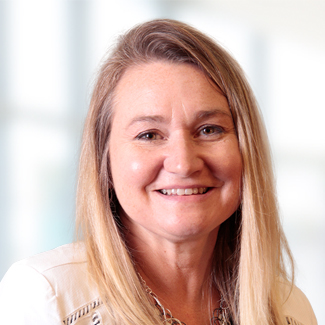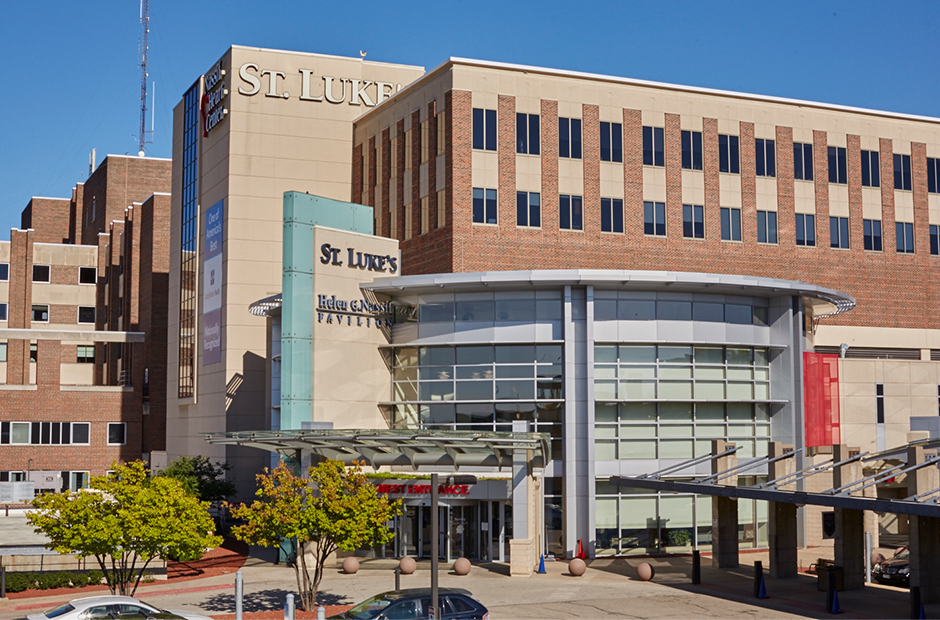"You have to use the words. You can't dance around it. You can’t be real vague," says Carol Meade, Director of Behavioral Health at UnityPoint Health – Cedar Rapids, one of the largest mental health providers in Iowa.

The question Carol is describing - “Are you thinking about suicide?” – is extraordinarily difficult for many of us to ask, especially when it comes to a loved one. But asking it saves lives. And, since the suicide rate in Iowa is significantly higher than the U.S. average, particularly among men of prime working age, we all need to get better at understanding and talking directly about the problem.
There are many initiatives in Cedar Rapids that are trying to help.
Some focus on changing the stoic, Midwestern tendency to bottle up feelings. One that lights Carol up with excitement is HealthPartners’ anti-stigma program, Make It OK. Perhaps fortuitously, given the stresses of COVID and then the devastation brought by a destructive derecho storm, a coalition of mental health professionals, faith leaders and community advocates launched the program in Cedar Rapids in March.
Making it okay to talk about mental health
“There are so many great things I could say about Make It Ok,” says Carol. “But perhaps the best is how simple it is. The message in the name is so simple. We need to make it okay to talk about mental health. One in five people will have some kind of mental health issue in their lives. It’s much more common than cancer or diabetes, but there’s so much shame associated with it. We need to break that down if we want to save lives and help people thrive.”
Carol is trained as an ambassador of the program and now trains others in the techniques, including employees at her own hospital. “Managing the soft side of the hard stuff” is an initiative that was set up to provide a safe space for leaders who often have to “carry the torch” during some of the most stressful times of the COVID pandemic.
According to Carol, the power of the program, which is still running, lies in junior leaders seeing their bosses listening and speaking up about their own struggles – making it okay to talk.
As a behavioral health leader, Carol is also deeply involved with UnityPoint Health’s screening work to identify individuals at high risk of suicide. “For two years,” she explains, “we’ve been using universal screening with the Columbia Screening tool for everyone who comes to the hospital. In the ER, whenever possible, they do a deeper dive.”

The tool helps UnityPoint Health’s teams quickly identify risk factors such as suicidal ideation and availability of guns or medications, and connect people to the appropriate behavioral health services and support. These services can include inpatient care, counseling or an early appointment with a primary care doctor.
While it may be a bit uncomfortable for some people, according to Carol, screening works and most people cooperate. She tells the story of a middle-aged African American woman who came to the hospital for a lab test. Carol explains that when the woman scored moderate to high-risk, a deeper assessment showed that she felt suicidal and even had a plan for how she would kill herself.
“She hadn’t told anyone about how she was feeling,” continues Carol. “We convinced her to tell her loved ones. She was a matriarch – everyone depended on her, including her grandchildren. That’s what kept her going in the end.”
The woman visited her primary care doctor the next day and was connected with a mental health provider.
The next round of Make It OK activities is planned for the fall of 2020. Carol is excited to pick up where the team left off since there is so much to do.
‘The way we make people feel matters more than anything else’ reads the slogan on the website of UnityPoint Health – Cedar Rapids. It feels particularly appropriate as the storm-torn community works to heal itself in so many ways. We wish them well.